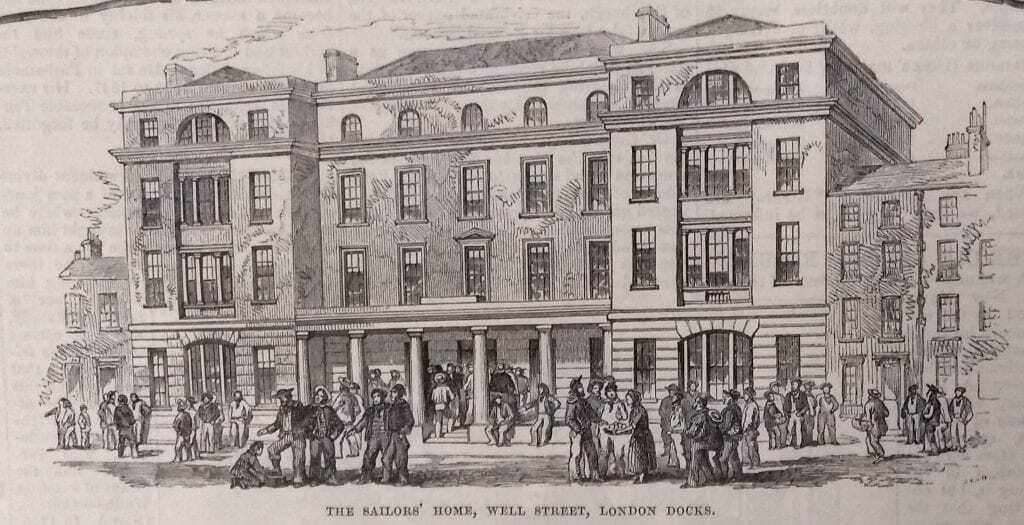A group of philanthropists, led by Rev. George Charles ‘Boatswain’ Smith (1782–1863) founded the Destitute Sailors' Asylum in 1827, based in a converted warehouse in Dock Street and providing shelter and food for shipwrecked and destitute seamen. We've not found any memorials to that home and assume it long gone.
Then, when the Royal Brunswick Theatre in neighbouring Well Street (now Ensign Street) collapsed, Smith and his colleagues acquired that large site for another home, a Sailors' Home for the use of all sailors. The main building on Ensign Street opened in 1835. This site stretched across the block from Ensign Street to Dock Street, where the large extension was built in 1865.
UCL's Survey of London give a summary of the buildings as: "The Sailors’ Home, also known at first as the Brunswick Maritime Establishment, was built in 1830–5 with Philip Hardwick as its architect. Enlarged to Dock Street in 1863–5, substantially altered in 1911–12, rebuilt on the Dock Street side in 1954–7, adapted to be a hostel for the homeless in 1976–8, and again converted to be a youth hostel in 2012–14... As the first purpose-built short-stay hostel for sailors anywhere, it represented in its original form the invention of a building type, the Royal Hospital for Seamen in Greenwich notwithstanding. It was to have seminal influence on the development of lodging-house architecture. ... In 1893–4 the original building’s south range and a stable yard beyond were replaced by a Mercantile Marine Office, which building survives on Ensign Street."
The UCL page is extremely informative but for additional information: Victorian London provides a lot of detail of how the home operated and this 1890 map shows the layout of the buildings, with dormitories, dining hall, etc.
The remaining sections of the Ensign Street building can easily be recognised on the street even without the portico and the south range.
The 1950s Dock Street frontage is rather fine. Google Maps provides many photos of the interior of this building, now, 2022, a Wombat City Hostel, and the basement is surely from the 1865 building if not from the 1828 theatre. UCL have a photo of the 1865 exterior, and provide a link to photos of its interior showing the sleeping accommodation.
When we last checked the link to the map was failing. If this is still the case: look for "Insurance Plan of London Vol. XI: sheet 342" in the wonderful Old Maps Online.








Comments are provided by Facebook, please ensure you are signed in here to see them